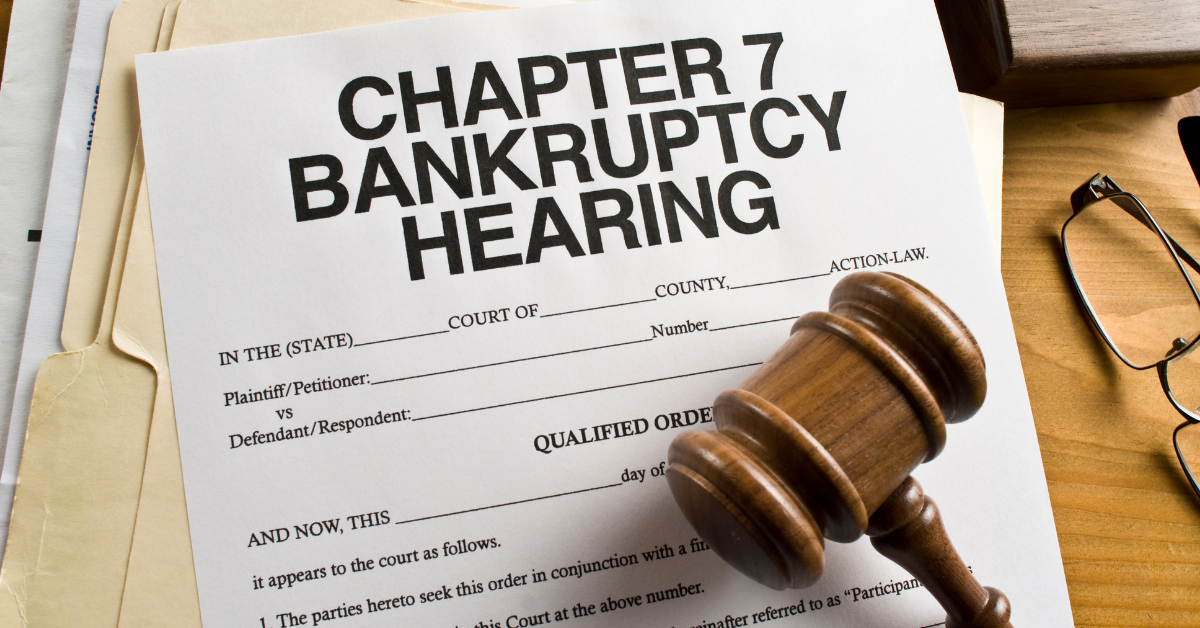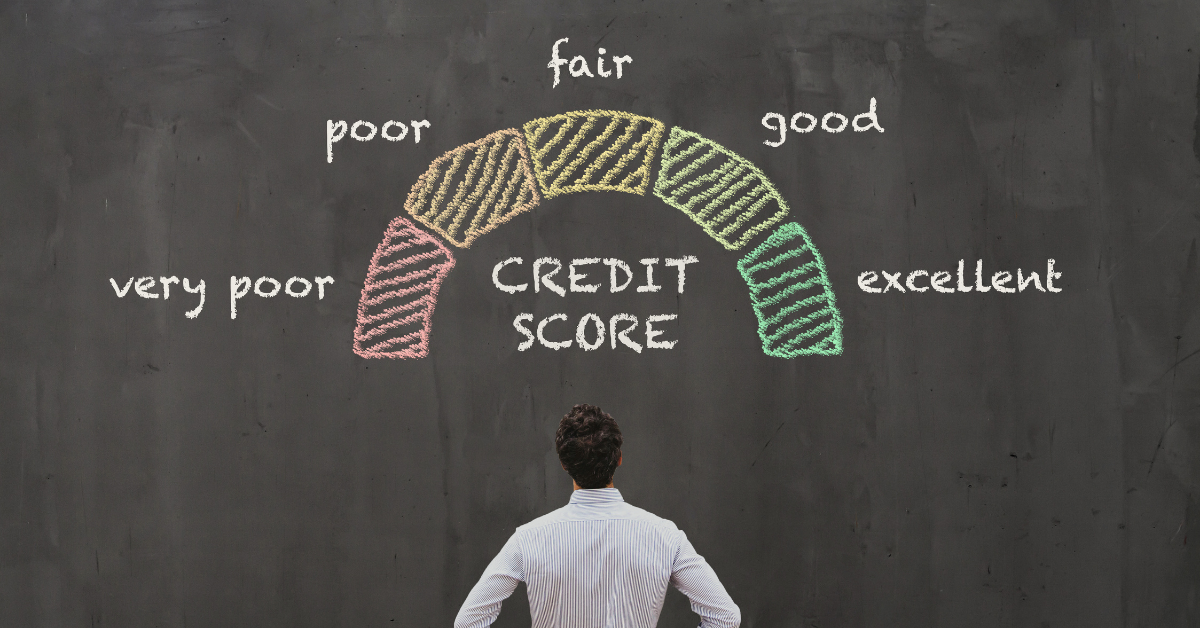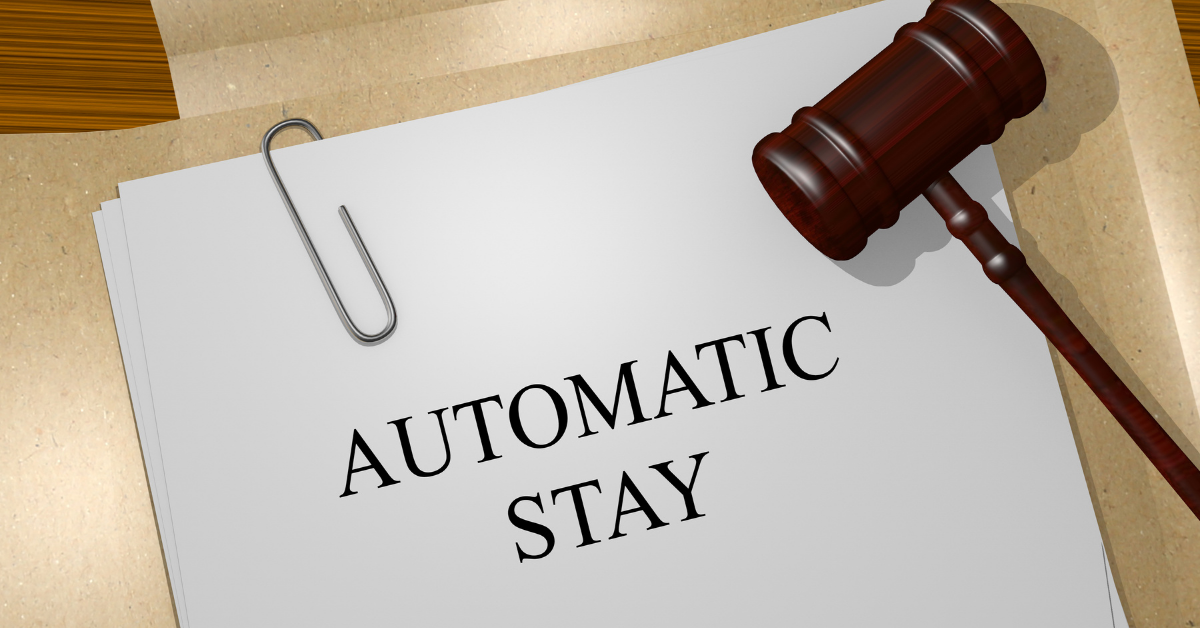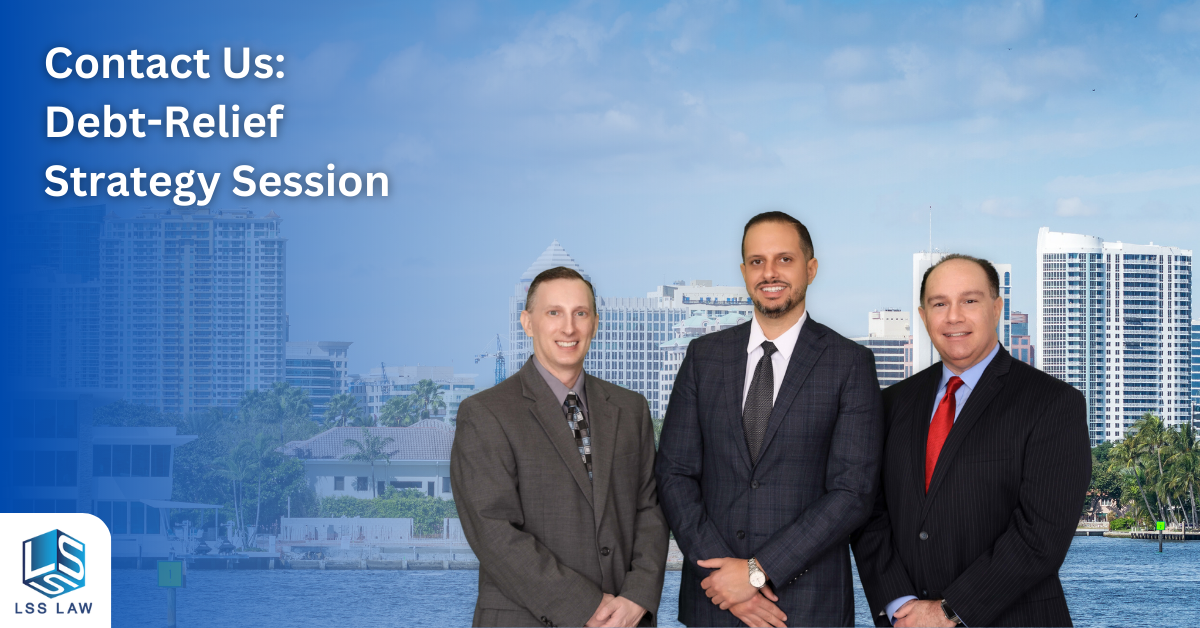Are you feeling overwhelmed by mounting debts and financial pressure? We understand. It’s a challenging place to be, and it’s easy to feel like there’s no way out. But we’re here to tell you there is hope. Bankruptcy in Florida, specifically Chapter 7, can be a lifeline to those drowning in debt, providing a way to regain control and start anew. It’s not an end, but a beginning – a fresh financial start.
About Bankruptcy in Florida: Chapter 7

Chapter 7 bankruptcy in Florida, often referred to as liquidation or straight bankruptcy, is a legal process designed to help individuals struggling with unmanageable debt. It works by liquidating or selling off your non-exempt assets to repay your creditors. But don’t worry, not all your assets will be sold off. Florida law provides specific exemptions to protect your home, car, retirement accounts, and some personal property.
Before you can file for Chapter 7, you must pass the means test. This test compares your income to the state’s median income and determines your disposable income after necessary living expenses. If your income is too high, you may not qualify for Chapter 7, but don’t despair. There are other bankruptcy options available, such as Chapter 13.
Filing for Chapter 7 requires completing a series of bankruptcy forms detailing all your assets, debts, income, and expenses. A bankruptcy trustee is then appointed to review your financial information, liquidate non-exempt assets, and distribute the proceeds to your creditors. This process typically takes four to six months to complete.
While the thought of liquidating your assets might seem daunting, it’s important to remember that Chapter 7 is designed to give you a fresh financial start. It’s a tool to help you remove the financial monkey from your back and open the door to a brighter future. And remember, you’re not alone in this process. A qualified Florida bankruptcy lawyer can guide you every step of the way, ensuring you understand your options and make the best decisions for your financial future.
What Does a Bankruptcy Trustee Do?
In every Chapter 7 bankruptcy case, a bankruptcy trustee is appointed. This individual plays a critical role in the bankruptcy process. Once you’ve filed your bankruptcy petition, the trustee reviews your financial information, including assets, debts, income, and expenses.
Their primary role is to liquidate non-exempt assets, meaning they sell these assets and use the proceeds to repay your creditors. This may sound intimidating, but remember, not all of your assets are up for grabs. Florida bankruptcy law provides specific exemptions to protect certain assets like your home, car, and retirement accounts.
The trustee also oversees the meeting of creditors, often referred to as the 341 meeting. During this meeting, you’ll be asked questions about your financial affairs and your bankruptcy paperwork. It’s essential to be honest and thorough in your responses.
Understanding Florida’s Homestead Exemption

Florida’s homestead exemption is one of the most generous in the country. It protects an unlimited amount of equity in your primary residence, with size restrictions based on the location of the property. This means that regardless of how much your home is worth, it cannot be sold off to repay your creditors in a Chapter 7 bankruptcy, as long as it meets certain size requirements.
Furthermore, Florida’s wildcard exemption allows for additional protection of personal property. This can include items like furniture, electronics, or even cash, up to a certain amount. Understanding these exemptions is crucial as you navigate your bankruptcy case, and a knowledgeable Florida bankruptcy attorney can help clarify these points for you.
Chapter 7 Bankruptcy: The Impact on Your Credit

A common concern for those considering bankruptcy is the impact it will have on their credit. It’s true that a Chapter 7 bankruptcy will remain on your credit report for ten years. However, this doesn’t mean your credit will be damaged for a decade.
In fact, many individuals find that their credit score begins to improve relatively soon after filing bankruptcy. This is because most of your unsecured debts, like credit card debt and medical bills, are discharged in a Chapter 7 bankruptcy, significantly reducing your debt-to-income ratio.
Additionally, there are steps you can take to rebuild your credit after bankruptcy. These include paying any remaining debts on time, establishing a budget to avoid future debt, and gradually opening new lines of credit.
While bankruptcy should never be taken lightly, it’s important to remember that it’s a tool designed to help you regain control of your financial situation. It’s not a punishment, but rather a path towards a fresh financial start.
The Means Test Explained
In order to file for Chapter 7 bankruptcy in Florida, you must first pass what’s known as the means test. This test compares your income to the median income for a household of your size in Florida. If your income is less than or equal to the median, you automatically qualify for Chapter 7.
However, if your income is above the median, you’ll need to calculate your disposable income by deducting specific monthly expenses from your current monthly income. If your disposable income is below a certain threshold, you may still qualify for Chapter 7.
The means test can be complex, and it’s crucial to accurately calculate your income and allowable expenses. A skilled Florida bankruptcy attorney can help guide you through this process, ensuring you meet all requirements.
Chapter 7: Secured vs. Unsecured Debts

Understanding the difference between secured and unsecured debts is crucial when filing bankruptcy. Secured debts are those tied to an asset, like a car loan or mortgage. If you don’t pay these debts, the lender can take the asset. On the other hand, unsecured debts, like credit card debt and medical bills, are not tied to any specific asset.
In a Chapter 7 bankruptcy, most unsecured debts can be discharged, or wiped out. However, secured debts are typically not dischargeable. If you want to keep the asset tied to the secured debt, such as your home or car, you’ll need to continue making payments on these debts even after your bankruptcy case is over.
Completing The Credit Counseling and Debtor Education Courses
When filing for Chapter 7 bankruptcy in Florida, you’re required to complete a credit counseling course before filing your bankruptcy petition. This course is designed to help you understand your financial situation and explore all available debt relief options.
Additionally, after filing but before receiving a bankruptcy discharge, you must complete a debtor education course. This course provides practical tips for managing your money and credit effectively after bankruptcy.
Both of these courses can be completed online or over the phone, and it’s important to ensure they are approved by the Department of Justice. Once completed, you’ll receive certificates of completion which must be filed with the bankruptcy court.
Chapter 7 Bankruptcy Florida Bankruptcy Lawyers
A Florida bankruptcy lawyer plays an essential role in the Chapter 7 bankruptcy process. From the initial consultation, they can provide you with crucial advice on whether filing for bankruptcy is the best option for your financial situation. They will help you understand the implications of Chapter 7 bankruptcy on your personal property and secured debts, and guide you through the means test to determine your eligibility.
Your bankruptcy attorney will also assist you in preparing and filing your bankruptcy petition and other necessary bankruptcy forms with the bankruptcy court. They will represent you at the 341 meeting with the bankruptcy trustee and your creditors, and ensure that you complete the required credit counseling and debtor education courses.
Moreover, a seasoned Florida bankruptcy lawyer will help protect your rights throughout the bankruptcy process, ensuring that your bankruptcy case proceeds smoothly and efficiently. They will navigate the complexities of Florida bankruptcy law, federal law, and bankruptcy exemptions to protect as much of your property as possible.
Filing Fees and Other Costs
Filing for Chapter 7 bankruptcy in Florida involves certain costs. The filing fee for a Chapter 7 bankruptcy case is currently $338. This fee is paid to the bankruptcy court when you file your bankruptcy petition.
In addition to the filing fee, you will also need to pay for the required credit counseling and debtor education courses. These courses typically cost between $15 and $50 each.
If you hire a bankruptcy attorney to help you with your bankruptcy case, you will also need to pay attorney’s fees. The cost of a bankruptcy attorney varies depending on your location and the complexity of your case. However, hiring an attorney can be a worthwhile investment, as they can help ensure that your bankruptcy case is handled correctly and efficiently.
It’s important to note that under certain circumstances, you may be able to have the Chapter 7 filing fee waived or pay it in installments. Your bankruptcy attorney can provide more information about this option.
The Automatic Stay: A Crucial Benefit of Chapter 7 Bankruptcy

One of the immediate benefits of filing for Chapter 7 bankruptcy is the automatic stay. This provision halts most collection actions against you as soon as your bankruptcy petition is filed with the bankruptcy court. This means creditors can no longer call you, send collection letters, sue you, garnish your wages, or seize your assets without permission from the bankruptcy court.
The automatic stay can provide much-needed relief if you’re facing foreclosure, eviction, or utility disconnections. It can also stop wage garnishments and other collection actions that are draining your resources. However, it’s important to note that the automatic stay does not apply to certain types of debts, such as child support and alimony.
It’s also worth noting that the automatic stay is temporary. It remains in effect until your bankruptcy case is closed or discharged, or until the bankruptcy court lifts the stay at a creditor’s request. Your bankruptcy attorney can provide more information about the automatic stay and how it applies to your specific situation.
Non-Exempt Assets and Liquidation in Chapter 7 Bankruptcy
In a Chapter 7 bankruptcy, the bankruptcy trustee is responsible for selling, or liquidating, your non-exempt assets to pay off your creditors. Non-exempt assets are those that are not protected by bankruptcy exemptions.
In Florida, non-exempt assets can include luxury items, second homes, additional vehicles, valuable collections, and cash, stocks, or bonds that exceed the exemption limits. Your bankruptcy attorney can help you understand what assets are considered nonexempt under Florida law.
Once your non-exempt assets are sold, the bankruptcy trustee uses the proceeds to pay off your unsecured debts. Any debts that remain after the liquidation process are typically discharged, meaning you are no longer legally obligated to pay them.
However, not all debts can be discharged in a Chapter 7 bankruptcy. Certain debts, such as student loans, child support, alimony, and some tax debts, are considered non-dischargeable and you will still be responsible for paying them even after your bankruptcy case is closed.
It’s important to understand that each bankruptcy case is unique and the liquidation process can be complex. Therefore, it’s recommended to seek the advice of a knowledgeable bankruptcy attorney to navigate the bankruptcy process and protect your rights.
Florida Chapter 7 FAQ
How often can I file for Chapter 7 bankruptcy in Florida?
You can file for Chapter 7 bankruptcy once every eight years. If you’ve previously filed for Chapter 13 bankruptcy, you must wait six years before filing for Chapter 7.
What is the ‘means test’ in the context of Chapter 7 bankruptcy?
The ‘means test’ is a requirement for Chapter 7 bankruptcy that compares your income to the median income in Florida. If your income is below the median, you qualify for Chapter 7 bankruptcy. If it’s above, you may still qualify if you can prove that you don’t have enough disposable income to pay off your debts.
How does Chapter 7 bankruptcy affect my credit score?
A Chapter 7 bankruptcy will remain on your credit report for 10 years. While it may initially lower your credit score, most people find that their score improves over time as they rebuild their credit.
What are non-exempt assets in Chapter 7 bankruptcy?
Non-exempt assets are assets that are not protected by bankruptcy exemptions and can be sold by the bankruptcy trustee to repay your creditors. These can include luxury items, additional vehicles, valuable collections, and cash or investments that exceed the exemption limits.
Can I keep my home and car in Chapter 7 bankruptcy?
In many cases, yes. Florida’s homestead exemption protects an unlimited amount of equity in your primary residence, and the motor vehicle exemption protects up to $1,000 in vehicle equity. However, you must continue to make payments on any secured debts related to these assets.
What debts cannot be discharged in Chapter 7 bankruptcy?
Certain types of debts, such as student loans, child support, alimony, and some tax debts, cannot be discharged in Chapter 7 bankruptcy. You’ll still be responsible for paying these debts even after your bankruptcy case is closed.
Contact Us For Chapter 7 Bankruptcy Assistance

Are you ready to take the first step towards a brighter financial future? At LSS Law, we’re committed to helping you navigate the complexities of Chapter 7 bankruptcy. You can reach us at our contact page or at (954) 466-0541. Let’s work together to remove the financial monkey from your back and open the door to a brighter future.






